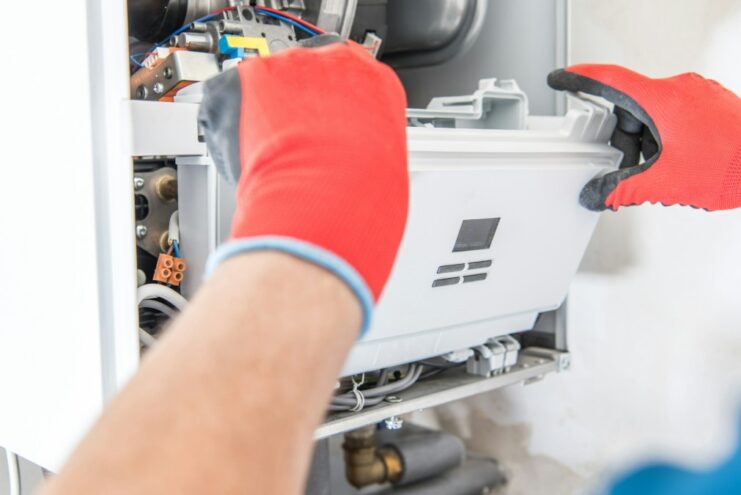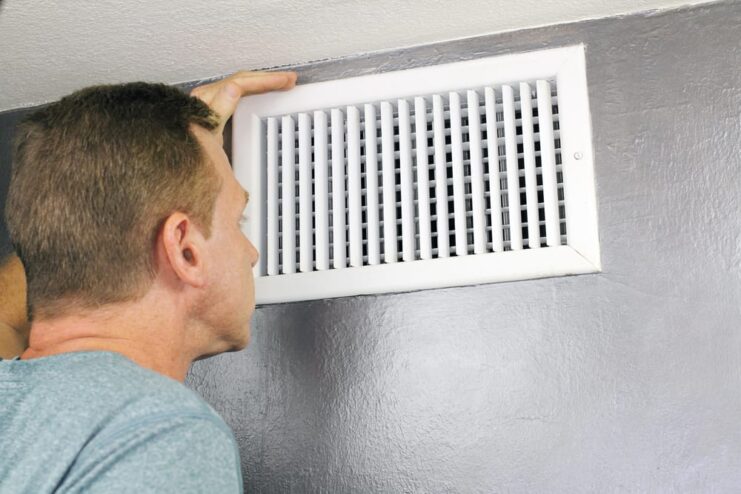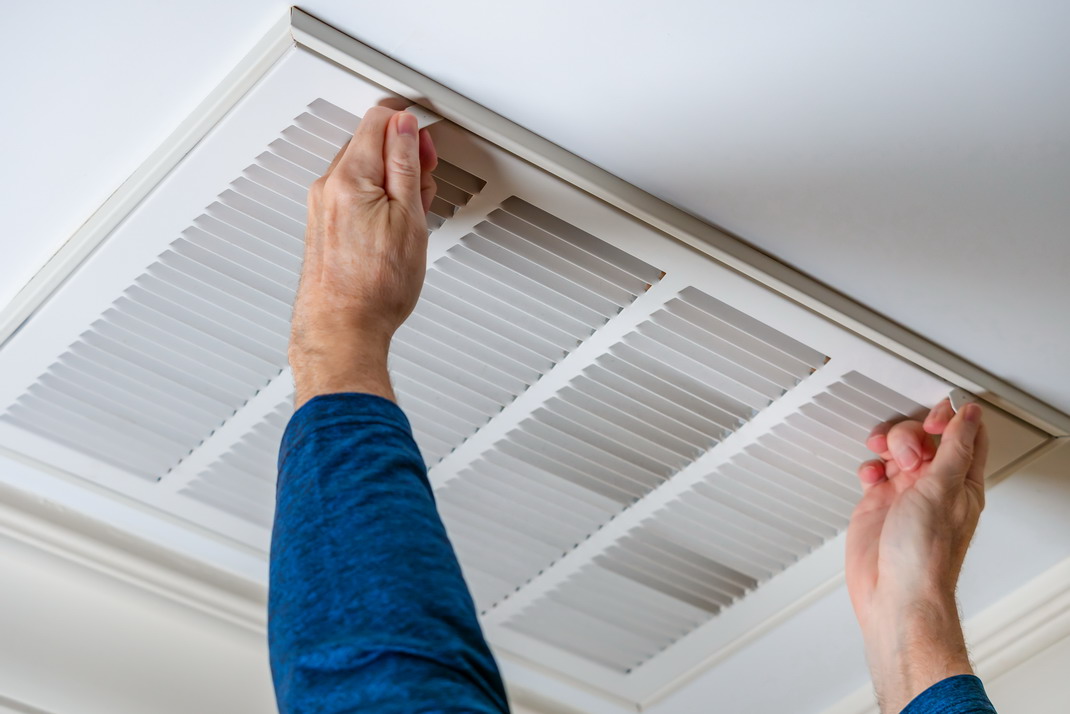The chances are pretty good that the heating system in your home is a forced-air system. Forced air is the preferred technology for modern heating and cooling. It has its advantages and disadvantages, of course. One of the disadvantages is the potential for unpleasant odors to circulate throughout the home. Take that musty smell, for example.
It is not unusual to smell a musty odor when turning the furnace on for the first time in the fall. But it should dissipate fairly quickly. If the musty smell is ongoing, you likely have a problem that needs to be dealt with. A heating and cooling contractor could diagnose and solve the issue.
How Forced Air Systems Work
Before discussing what causes musty odors in a forced air system, it’s a good idea to understand how forced air systems work. The system is defined by a blower motor and fan that circulates air throughout the house. Forced air is utilized for both heating and cooling.
During the winter, the furnace or heat pump creates warm air that is subsequently circulated through the house via ductwork. The system sucks air in through cold air returns strategically deployed throughout the house. The air is then heated as it moves through the furnace or heat exchanger and then blown back out into the home via its registers.
What Causes the Musty Smell

Certain conditions within a forced-air system can cause the musty smell. Superior Water & Air, a plumbing and HVAC contractor serving customers in both north and south Utah, says one of the biggest culprits is moisture.
Moisture in ductwork is a haven for mold and mildew. Both emit musty odors as they grow. But it is not just ductwork homeowners have to worry about. Moisture can also accumulate on the evaporator coil or condensate drain pan. These two locations are also well-known sources of mold and mildew.
Getting rid of the moisture is the obvious solution. Take away water and mold and mildew cannot grow. As for other causes of that musty smell, here are a few more:
- Blocked lines – The condensate drain line allows water produced by condensation to flow away from the system. If this line gets clogged, water can back up, stagnate, and promote mold growth.
- Dirty filters – Dirty air filters that no longer allow air to move freely can contribute to musty odors by way of trapped dust, dirt, bacteria, and mildew.
- Age and maintenance issues – An HVAC system that is not routinely cleaned and maintained will deteriorate with age. Deterioration can contribute to musty odors by way of improper air handling, moisture, and dirt buildup.
The good news is that all the causes of musty odors in a forced air system are easily addressed. The bad news is that ignoring them could eventually lead to other problems, including health issues.
Musty odors are a sign of things in the air that you do not really want to be breathing in. So it’s best to get a system looked at if it does not smell right.
Why Odors Shouldn’t Be Ignored
Musty odors are more than just a nuisance. They are a signal that the air you’re breathing may contain mold spores, bacteria, or other contaminants. Prolonged exposure can irritate respiratory systems, especially in people with asthma or allergies. Children and the elderly are particularly vulnerable.
Aside from health concerns, ongoing odors can also be a red flag for system inefficiency. A unit struggling with blockages or moisture buildup will not perform at its peak, which can increase energy consumption and utility bills. In other words, ignoring that smell could be costing you money month after month. Addressing the issue early is the most cost-effective and health-conscious approach.
Professional Maintenance and Cleaning

Homeowners can minimize odors by routinely changing air filters. In addition, it’s a good idea to schedule regular maintenance and cleaning. In most environments, annual or semiannual maintenance should be sufficient. Even if a home is only occupied part-time, regular service is still a good idea.
Musty odors coming from a forced-air HVAC system can range from mildly irritating to extremely annoying. One way or another, they should be identified and addressed. Living with musty odors is both unnecessary and unwise.
Signs That Indicate It’s Time to Call a Professional
You don’t need to panic every time you smell something odd, but some scenarios clearly point to a deeper problem:
- Persistent odors – If the musty smell lingers for more than a few days, mold is likely present.
- Visible mold growth – Check vents, registers, or even around the furnace. Any dark patches or fuzzy growths are warning signs.
- Humidity problems – High indoor humidity can amplify mold issues, especially in basements or poorly ventilated homes.
- Reduced airflow – If airflow feels weaker than usual, blockages or buildup may be causing both the odor and efficiency loss.
Recognizing these signals early can save you from expensive repairs later.
Practical Steps Homeowners Can Take
While many solutions require professional service, there are a few actions you can handle yourself to minimize odors:
- Replace filters regularly – Every 2–3 months is ideal, or more frequently in dusty environments.
- Inspect vents and returns – Keep them clear of dust and debris. Even furniture placement can impact air circulation.
- Control indoor humidity – Use dehumidifiers in damp areas to keep relative humidity below 50%.
- Check drain lines – If you’re comfortable, ensure the condensate line is dripping properly outside and not clogged.
These small habits reduce the chance of musty air taking over your home and keep the system running more smoothly.
Long-Term Benefits of Routine Care

An overlooked benefit of keeping your HVAC system clean and odor-free is longevity. A well-maintained system can operate efficiently for 15 to 20 years, whereas a neglected one may require replacement in half that time. Preventive care also lowers the risk of sudden breakdowns in the middle of winter.
Furthermore, clean air has intangible benefits: better sleep, more comfort, and fewer headaches or allergy flare-ups. Many homeowners only realize the difference in indoor air quality after scheduling a deep cleaning or duct inspection.
Investing in routine care pays back in comfort, health, and financial savings.
